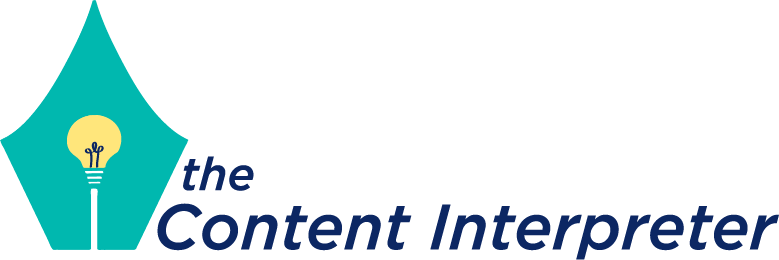Note: This blog post is adapted from content which will be featured in an upcoming course from The Content Interpreter. The course will make its exclusive debut on the ShiftCo platform in early 2022. Read more about ShiftCo and its mission statement.
Every coach I’ve ever worked with, read, or spoken to has mentioned the power of shedding limiting beliefs. They insist the only thing stopping you is you, and you can overcome the worst of circumstances to meet your destiny.
They’re right, of course. However, in working with clients, I’ve noticed that limiting beliefs - whether they’re purely internal, or inspired by someone else - can sometimes be a gift.
This is a story about a client of mine from a while back. She is one of the premiere experts in the study of team leadership. She literally (co-)wrote the book it.
A couple of years ago, she was asked to speak at a conference of 150 ER physicians and staff. But how would she be able to package work carefully constructed over the course of years, decades? That question of where to start, what to include, what to leave out, how to keep things moving… those are the nagging questions.
She already wrote the book, yes, but you can’t read a textbook to an audience. She also pointed out that she couldn’t lecture as she does at the university.
What to do? To understand how to package your value or expertise for an audience, you must go back to the beginning.
So that’s where we went. One story that turned out to be crucial to her final speech was from the beginning of her career in academia. Actually, it was before the beginning when she herself was an undergraduate student. She told me she had a male advisor who said to her, completely unchallenged, “Women don’t belong in the STEM field. Why don’t you study English lit?”.
What happened next may surprise some people. She didn’t assert herself. She didn’t switch advisors. She took his advice – exactly, as a matter of fact. Instead of pursuing a STEM major, she studied English literature! She learned about narrative, character development, literary devices, the works. Big mistake, right?
Nope. Later, when she was deciding on her course of study at grad school, she discovered the social sciences. In it, she found everything she had learned in English literature, literally come to life. Social sciences are built on the analysis of people, and she was thrilled to see the parallels between literary characters and the people who would be touched or influenced by her work. That was the beginning of the journey to who she would eventually become.
Limiting beliefs are costly, but sometimes, we’re just not ready to overcome them when it seems like the “perfect moment” presents itself. If we can learn from our limiting beliefs, though, that is a much bigger victory… and a much better story.
The truth is that this narrative was needed. She needed to share this story, even in a professional setting, because without it, something is missing. The audience would only have a fractional sense of why this material is important – to them and to everyone else.
If you want to connect with your audience, you have to own and share your entire story.

